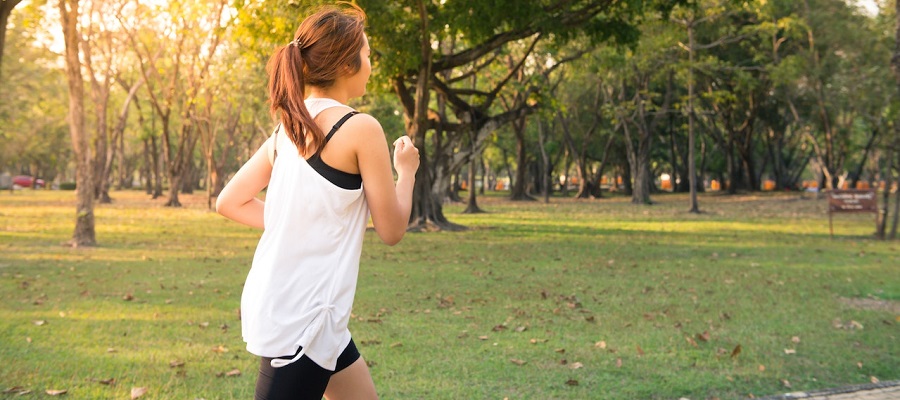Doing sports can have a significant effect on the way you choose your food. When you engage in regular physical activity, your body's energy needs increase, so it's important to consume enough nutrients to fuel your workouts and support your overall health. Here are a few ways in which sports can influence your food choices:
-
Caloric needs: Engaging in sports and other forms of physical activity can increase your caloric needs. To support your workouts, you may need to consume more calories, particularly if you are training at a high intensity or for long periods of time. Choosing foods that are high in calories and nutrients, such as healthy fats, proteins, and complex carbohydrates, can help you meet your energy needs.
-
Hydration: Staying hydrated is important when participating in sports, as your body loses fluids through sweat. Be sure to drink enough water before, during, and after exercise to replace lost fluids.
-
Recovery: After a workout, your body needs to replenish glycogen stores and repair and rebuild muscle tissue. Consuming protein and carbohydrates within the first hour after exercise can help with recovery.
-
Nutrient needs: Engaging in sports can increase your body's need for certain nutrients, such as iron, calcium, and B vitamins. Choosing a varied diet that includes a variety of nutrient-rich foods can help you meet your needs.
It's also important to remember that everyone's nutritional needs are different, and the specific foods you choose will depend on your age, gender, size, activity level, and other factors. It's a good idea to consult with a healthcare provider or a sports nutritionist to determine the best approach for your individual needs
What are the most healthy meals for the athletes?
Athletes have higher nutritional needs than sedentary individuals due to the energy demands of their training and competition. It's important for athletes to consume a balanced diet that includes a variety of nutrients to support their performance and overall health. Some healthy meals for athletes might include:
-
Grilled chicken or turkey with brown rice and roasted vegetables: This meal is high in protein, which is essential for muscle repair and growth, and complex carbohydrates, which provide sustained energy.
-
Baked salmon with quinoa and steamed broccoli: Salmon is a good source of protein and omega-3 fatty acids, which can help reduce inflammation and improve heart health. Quinoa is a protein-rich grain that is also high in iron, which is important for oxygen transport in the body.
-
Vegetarian chili with beans, vegetables, and whole grain bread: This meal is high in protein, fiber, and complex carbohydrates. Beans are a good source of protein and iron, and vegetables provide a variety of nutrients, including vitamins, minerals, and antioxidants.
-
Tofu stir-fry with brown rice and mixed vegetables: Tofu is a plant-based protein source that is high in iron and calcium. This meal also provides complex carbohydrates and a variety of nutrients from the vegetables.
-
Greek yogurt with berries and nuts: Greek yogurt is high in protein and can be a good post-workout snack. Berries are a good source of antioxidants, and nuts provide healthy fats and protein.
It's important to remember that everyone's nutritional needs are different, and the specific foods you choose will depend on your age, gender, size, activity level, and other factors. It's a good idea to consult with a healthcare provider or a sports nutritionist to determine the best approach for your individual needs.
What is the difference between the meals to eat before and after exercise?
The type and timing of the meals you eat before and after exercise can have an impact on your performance and recovery. Here are some general guidelines for meals before and after exercise:
Before exercise:
- Consume a light meal or snack about 1-3 hours before exercise.
- Choose foods that are high in carbohydrates and moderate in protein, as carbohydrates provide energy and protein helps repair and rebuild muscle tissue.
- Avoid high-fat foods, as they can take longer to digest and may cause gastrointestinal discomfort during exercise.
Examples of pre-exercise meals or snacks might include:
- Oatmeal with bananas and nuts
- Whole grain toast with peanut butter and honey
- Greek yogurt with berries and granola
After exercise:
- Consume a meal or snack within the first hour after exercise to replenish glycogen stores and repair and rebuild muscle tissue.
- Choose foods that are high in protein and carbohydrates, as protein helps repair and rebuild muscle tissue and carbohydrates replenish glycogen stores.
- Consider adding a source of healthy fats, as they can help with recovery and provide long-lasting energy.
Examples of post-exercise meals or snacks might include:
- Grilled chicken or turkey with brown rice and roasted vegetables
- Baked salmon with quinoa and steamed broccoli
- Tofu stir-fry with brown rice and mixed vegetables
It's important to remember that everyone's nutritional needs are different, and the specific foods you choose will depend on your age, gender, size, activity level, and other factors. It's a good idea to consult with a healthcare provider or a sports nutritionist to determine the best approach for your individual needs.


